What does the Ukraine invasion mean for Vladimir Putin’s legacy?
War in Europe would mark a ‘massive escalation’ – but Russian president may not be concerned about short-term fallout
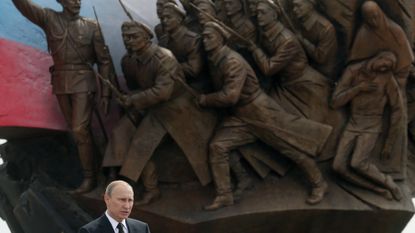
After two decades at the helm of Russian politics, Vladimir Putin will be considering his legacy as a leader.
During his long reign in the Kremlin, the Russian president “has evolved from an afterthought of Washington leaders to the world’s most watched and pleaded-with man”, said The Washington Post. “Having complained for years about being ignored”, he has “reconstituted Russian military might to force the globe to reckon with his interests” – transforming Moscow into a power broker with international influence.
Now, “ageing, isolated” but more powerful than ever, Putin “is on the brink of waging a possibly catastrophic war” that could come to define his rule.
Subscribe to The Week
Escape your echo chamber. Get the facts behind the news, plus analysis from multiple perspectives.

Sign up for The Week's Free Newsletters
From our morning news briefing to a weekly Good News Newsletter, get the best of The Week delivered directly to your inbox.
From our morning news briefing to a weekly Good News Newsletter, get the best of The Week delivered directly to your inbox.
‘Legacy business’
This “man with the very long table who seats world leaders and ministers at an almost comical distance” cuts a “lone figure”, The Washington Post continued.
As he approaches his 70th birthday, in October, Putin has had ample time to “consider his legacy as the longest-serving Russian leader since Joseph Stalin”. And the “escape of Kyiv, for centuries the centre of East Slavic statehood, into the hands of the West” remains one of his “most striking and unendurable failures”, according to the paper.
His annexation of Crimea in 2014 “stamped his legacy” as a “gatherer of Russian lands”, wrote Russia experts Eugene Rumer and Andrew S. Weiss of the Carnegie Endowment for International Peace think tank. The occupation, which triggered Western sanctions and international condemnation, made Putin “the first ruler since Stalin to expand the country’s territory” and challenged “claims by foreign and some Russian observers that Russia is a declining power”.
If Putin is now willing to “shrug off” threats of Western sanctions once again in order to bring Kyiv back into Moscow’s immediate orbit, “it may be because he has literally heard it all before”, said Gideon Rachman, chief foreign affairs columnist at the Financial Times (FT).
Russia weathered the previous raft of sanctions “and by 2018 was staging a successful World Cup, which ended with Putin hosting the presidents of two EU countries, France and Croatia, in the VIP box”.
A full-scale invasion of Ukraine would mark a “massive escalation” in his willingness to “accept confrontation with the West”, Rachman continued.
But Putin may not be thinking about the short-term cost. “He may now be in the legacy business.”
‘Frightening new reality’
Putin has long expressed “a deep desire to ‘reunify’ the Russkiy Mir”, said the FT’s Rachman. The term describes the historic Russian world, “which, as he sees it, is now divided”.
So an invasion of Ukraine “could be seen as the completion of a historic task”. Putin may have concluded “that massive bloodshed is justified” to drag Kyiv from the West’s circle of influence back into Russkiy Mir, Rachman warned.
The Russian president is aware that major military intervention from Nato allies is unlikely, according to Kurt Volker, the former US ambassador to Nato.
“Nato has been extraordinarily clear that we will defend the territory of Nato allies,” Volker told BBC Radio 4’s Today programme. “But that pointedly excludes Ukraine and Georgia and Moldova. He is quite confident that he can get away with this and will go down in Russian history as someone who accumulated the lands and rebuilt a greater Russia.”
His apparent willingness to go to war is “not just a frightening new reality for Ukraine and, indeed, Nato”, said The Economist. “It also terrifies many in Russia’s elite.”
Business owners, diplomats, economists and government officials in Moscow reportedly told the paper that “they could barely fathom the ruinous consequences a war would bring to Russia – consequences which would go far beyond specific sanctions”.
Having once believed that “such dire consequences made a war of choice unthinkable for a calculating man like Putin”, Russian civil society is now being forced to “concede that it has edged into the realm of the thinkable”.
Create an account with the same email registered to your subscription to unlock access.
Sign up for Today's Best Articles in your inbox
A free daily email with the biggest news stories of the day – and the best features from TheWeek.com
-
 'Good riddance to the televised presidential debate'
'Good riddance to the televised presidential debate'Instant Opinion Opinion, comment and editorials of the day
By Harold Maass, The Week US Published
-
 Caitlin Clark the No. 1 pick in bullish WNBA Draft
Caitlin Clark the No. 1 pick in bullish WNBA DraftSpeed Read As expected, she went to the Indiana Fever
By Peter Weber, The Week US Published
-
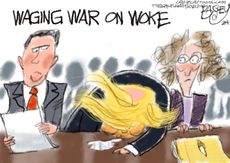 Today's political cartoons - April 16, 2024
Today's political cartoons - April 16, 2024Cartoons Tuesday's cartoons - sleepyhead, little people, and more
By The Week US Published
-
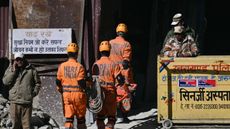 Puffed rice and yoga: inside the collapsed tunnel where Indian workers await rescue
Puffed rice and yoga: inside the collapsed tunnel where Indian workers await rescueSpeed Read Workers trapped in collapsed tunnel are suffering from dysentery and anxiety over their rescue
By Sorcha Bradley, The Week UK Published
-
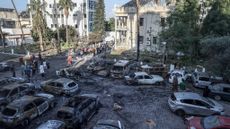 Gaza hospital blast: What the video evidence shows about who's to blame
Gaza hospital blast: What the video evidence shows about who's to blameSpeed Read Nobody wants to take responsibility for the deadly explosion in the courtyard of Gaza's al-Ahli Hospital. Roll the tape.
By Peter Weber, The Week US Published
-
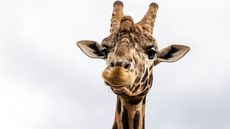 Giraffe poo seized after woman wanted to use it to make a necklace
Giraffe poo seized after woman wanted to use it to make a necklaceTall Tales And other stories from the stranger side of life
By Chas Newkey-Burden, The Week UK Published
-
 Helicopter sound arouses crocodiles
Helicopter sound arouses crocodilesTall Tales And other stories from the stranger side of life
By Chas Newkey-Burden, The Week UK Published
-
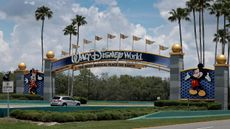 Woman sues Disney over 'injurious wedgie'
Woman sues Disney over 'injurious wedgie'Tall Tales And other stories from the stranger side of life
By Chas Newkey-Burden, The Week UK Published
-
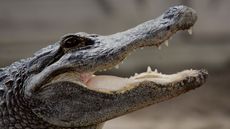 Emotional support alligator turned away from baseball stadium
Emotional support alligator turned away from baseball stadiumTall Tales And other stories from the stranger side of life
By Chas Newkey-Burden, The Week UK Published
-
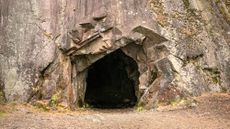 Europe's oldest shoes found in Spanish caves
Europe's oldest shoes found in Spanish cavesTall Tales And other stories from the stranger side of life
By Chas Newkey-Burden, The Week UK Published
-
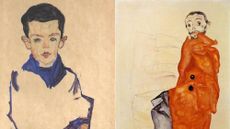 Artworks stolen by Nazis returned to heirs of cabaret performer
Artworks stolen by Nazis returned to heirs of cabaret performerIt wasn't all bad Good news stories from the past seven days
By The Week Staff Published